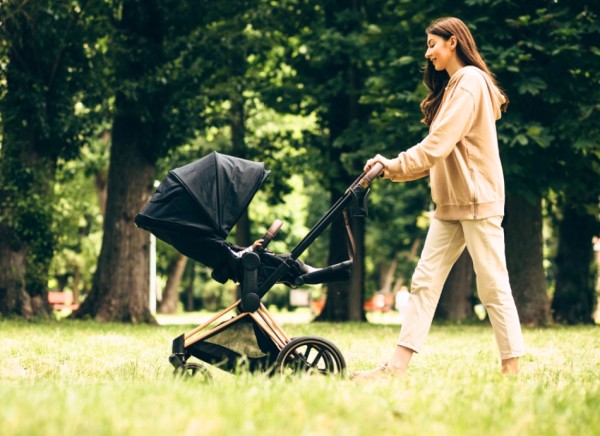You can now add Healthify as a preferred source on Google. Click here to see us when you search Google.
Mental wellbeing for new mums
Tips for looking after yourself as a new parent
Key points about mental wellbeing for new mums and dads
- In amongst the haze of nappies, feeding, burping and sleeping, looking after yourself can be low on your list of priorities when you're a new parent.
- Motherhood brings big changes and looking after a new baby is a full-time job with no days off, and no instruction manual.
- Taking care of yourself, physically and emotionally, is just as important as looking after your baby.
- Here are some tips to help you look after your own mental wellbeing when you're a new parent.

Having a baby brings plenty of joy but being a parent is hard work! There are times when you might feel overwhelmed and this can cause frustration, stress and unhappiness.
As well as looking after your baby, you might be worried about where you're living, money or relationships, or smaller things that add up and cause stress.
Even though you can't always solve these problems right away, there are ways you can help yourself cope with the stress. If you take care of yourself, you'll be better able to take care of your baby.
Know that there'll be good days and bad days. Celebrate little successes and if you're feeling down, let others know and talk with them about how you're feeling.
If it all feels too much or if you're having negative feelings that don't seem to be going away, tell someone such as your healthcare provider, midwife or Plunket nurse, or reach out for support from family and friends.
Becoming a dad
It's not just becoming a mother that can be hard – adjusting to being a dad or co-parent also has its challenges. You may not be able to breastfeed your baby but there are many other ways you can be involved and some of those may not feel easy. Being involved with nappy changing, feeding, bathing, cuddling, playing and settling your pēpi will help you adjust to parenthood as well as providing support for your partner.
Many of the tips below apply to both parents, especially if you're sharing responsibility for your new addition.
1. Do one thing every day just for you
Maybe it’s a cup of coffee with a friend, a bath, reading a magazine, doing a bit of knitting or listening to music. Whatever brings a smile to your face or helps you relax, find time to do something that's just for you every day.
2. Set realistic expectations
Try and let go of the pressure to have everything perfect in your home. Doing what's needed to care for your baby and looking after yourself are your priorities. For everything else, do what you can and leave the rest. See tip number 5.
3. Be flexible with your daily routine
Try your best to allow for flexibility in your day if needed. Your baby doesn't know if you've got a particular schedule and their needs may well get in the way of your plans. Remember, it's okay if any plans you've made have to change or don't work out.
4. Sleep when your baby sleeps
If you can, sleep 'little and often' when your baby sleeps. If you can't sleep during the daytime, find a comfortable position and some quiet, or put on some relaxing music, close your eyes and just rest for 10 minutes. Leave housework and other jobs and ask others to help you.
Read some tips for exhausted parents.
5. Ask for help and accept help when it's offered
You can't do everything yourself. Call on your support networks – family, whānau, friends – to help you with everyday tasks. If you find it hard to talk about what you need help with, have a list of tasks that your family and friends can choose from when they offer to help. This might include vacuuming, cleaning the bathroom, preparing a meal, washing dishes, doing laundry, ironing, taking other children out, or getting groceries for you.
They may even be able to watch your baby for a short time so you can get some rest. It's the best of both worlds – they take some of the workload off you and get to see baby too.
Whānau and friends can also be there to listen to your feelings and any worries you may have. Sometimes just having someone who listens can help, but they may also be able to share some helpful advice.
6. Learn to say no, or at least maybe
A friend wants to catch up for coffee but you'd rather have a sleep? Just say no. Maybe you've accepted a request from a whānau member to visit you and your new baby but you've both been up all night. Call and make another time. What you want and need matters the most, so put yourself and your baby's needs first.
7. Leave the house
In the early days you may not feel ready to leave your house, but after a few weeks it's great idea to get out and about – even if it's just taking your baby for a short stroll each day. Keep a nappy bag packed with everything you may need, including water and a snack for you, so when the weather's nice and your baby is settled you can get out the door quickly. If you have friends with new babies perhaps you can arrange to go out for a walk together.

Image credit: Freepik
Going out by yourself is also great for your mental health. If you've got support at home, try and schedule some 'me' time out of the house at least once or twice a week.
8. Find a new mum's support network
Connect with other mums with babies of a similar age to yours. Having someone to talk to who's dealing with the same issues as you can be really helpful. It makes you realise you're not alone and that others might be struggling at times. Talk to your Plunket nurse about joining a local mother's group(external link).
If you join an online group, you may be able to connect with other members at night – sometimes knowing someone else is awake too can make things easier to bear.
9. Limit your time on social media
Facebook, Instagram and Pinterest are great places for people to post photos that capture the good moments in life. But remember, what you're seeing is mostly the highlights of other people's lives – nobody usually posts pictures of their overtired, hungry baby or any of the tough times they're having with their newborn. Turn off your device and focus on your own journey with your baby. If you do go on social media, follow the pages that uplift you.
10. Get breastfeeding support if you need it
Breastfeeding can by physically and emotionally challenging, especially if you're having difficulties. Watch for signs you may need additional breastfeeding support.
If your mental health is declining because of breastfeeding challenges, it's important to get some help and possibly consider alternatives.
Find support for breastfeeding and read about what to do it you can't breastfeed.
11. Connect with your partner
Make time to be with your partner if you have one. Have a 'date night' at home even if you fall asleep together in front of the TV. If either of you are struggling, share how you're feeling and talk together about how you can support each other.
Share the load as much as you can, including getting up at night to feed your baby if you've expressed milk for bottle feeding or if you're formula feeding.
12. Remember to feed yourself
Eat regular nutritious high protein food. Have healthy snacks on hand that you can easily grab throughout the day. Keeping your body well fed will help give you the energy you need to care for your baby and yourself.
13. Recognise the signs of postnatal depression
Many new mums have the 'baby blues' – a brief period of feeling down and tearful with mood swings. This usually passes a few days after your baby is born. However, if you experience sadness, are crying a lot and have ongoing low mood you may have postnatal depression. Other signs to watch for include feeling anxious all the time, feeling worthless and having bad thoughts, feeling that you can't cope with anything, losing interest in activities you usually enjoy, loss of appetite, not sleeping well even when your baby is asleep, or feeling like you're not bonding with your baby.
Postnatal depression is a real and treatable condition so it's important to talk with your midwife, healthcare provider or Plunket nurse if you feel you need help. Read more about postnatal depression.
Apps reviewed by Healthify
You may find it useful to look at some meditation and mindfulness apps, baby care apps, breastfeeding apps and mental health and wellbeing apps for pregnancy and postpartum depression.
You can contact your healthcare provider, midwife or Well Child Tamariki Ora or Plunket nurse for advice and support.
Call the free PlunketLine 0800 933 922 to speak to a nurse 24 hours a day, 7 days a week.
If you need to talk to someone immediately, call or text 1737(external link) to reach a trained counsellor.
See our page on support for postnatal depression.
Being a parent – looking after you(external link) Plunket, NZ
Parent mental health (external link)Plunket, NZ
Navigating parenthood(external link) Depression.org.nz
Parent support groups and services in Aotearoa New Zealand(external link) KidsHealth, NZ
Apps
Baby care apps
Breastfeeding apps
Meditation and mindfulness apps
Mental health and wellbeing apps for pregnancy and postpartum depression
Brochures
Looking after yourself – mums(external link) All Right & Sparklers, NZ
Looking after yourself – dads(external link) All Right & Sparklers, NZ
Your emotional wellbeing during pregnancy and beyond(external link) Health New Zealand | Te Whatu Ora, NZ. Also available in Arabic(external link), Burmese(external link), Chinese (simplified)(external link), Chinese (traditional)(external link), Hindi(external link), Indonesian(external link), Japanese(external link), Korean(external link), Pashtu,(external link) Tagalog(external link), Thai(external link), Urdu(external link), Vietnamese(external link)
References
- Coping with stress after having a baby(external link) NHS, UK, 2024
- Mental health for new parents(external link) National Alliance on Mental Illness, US
- Adjusting to life with a baby(external link) Plunket, NZ
- Mental health and wellbeing tips during and after a pregnancy(external link) Maternal Mental Health Alliance, UK
Credits: Healthify editorial team. Healthify is brought to you by Health Navigator Charitable Trust.
Last reviewed:





